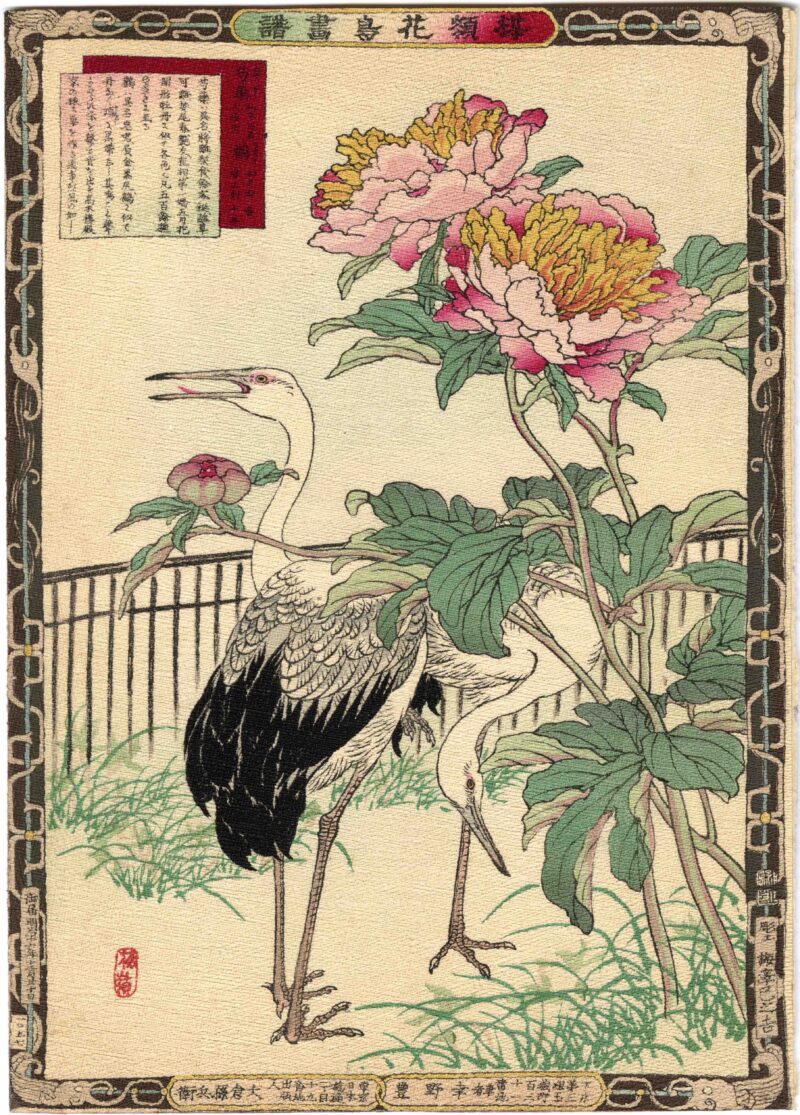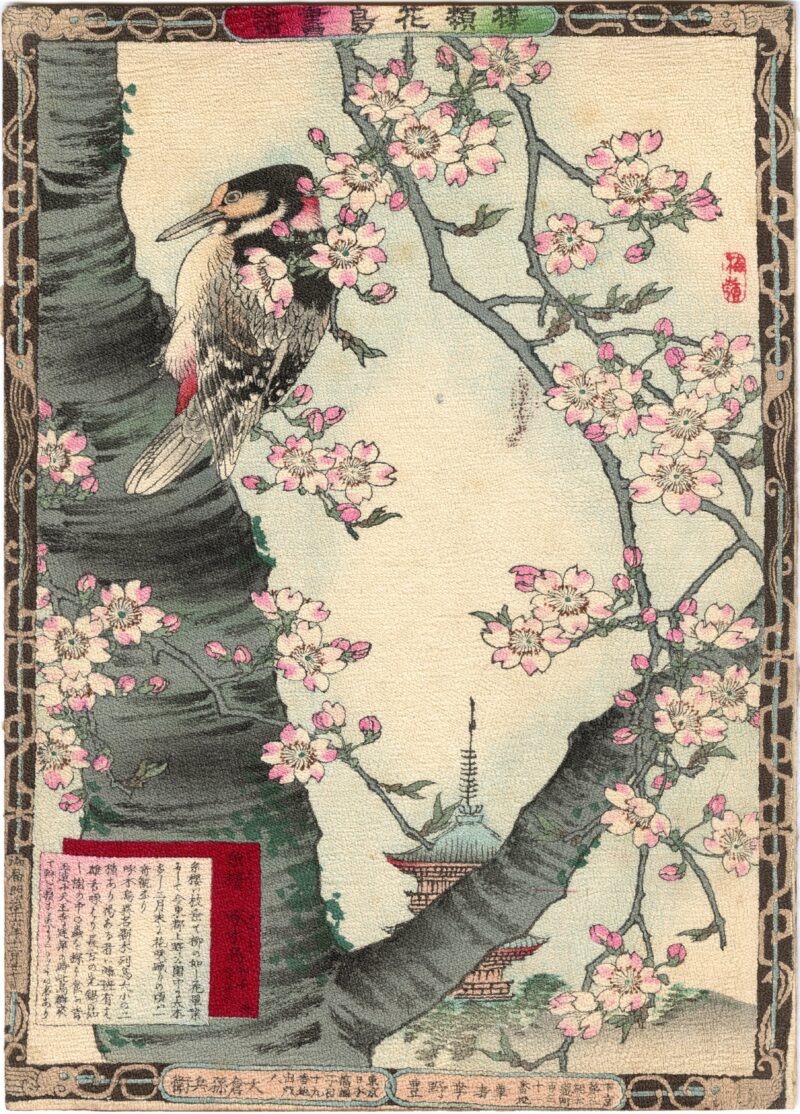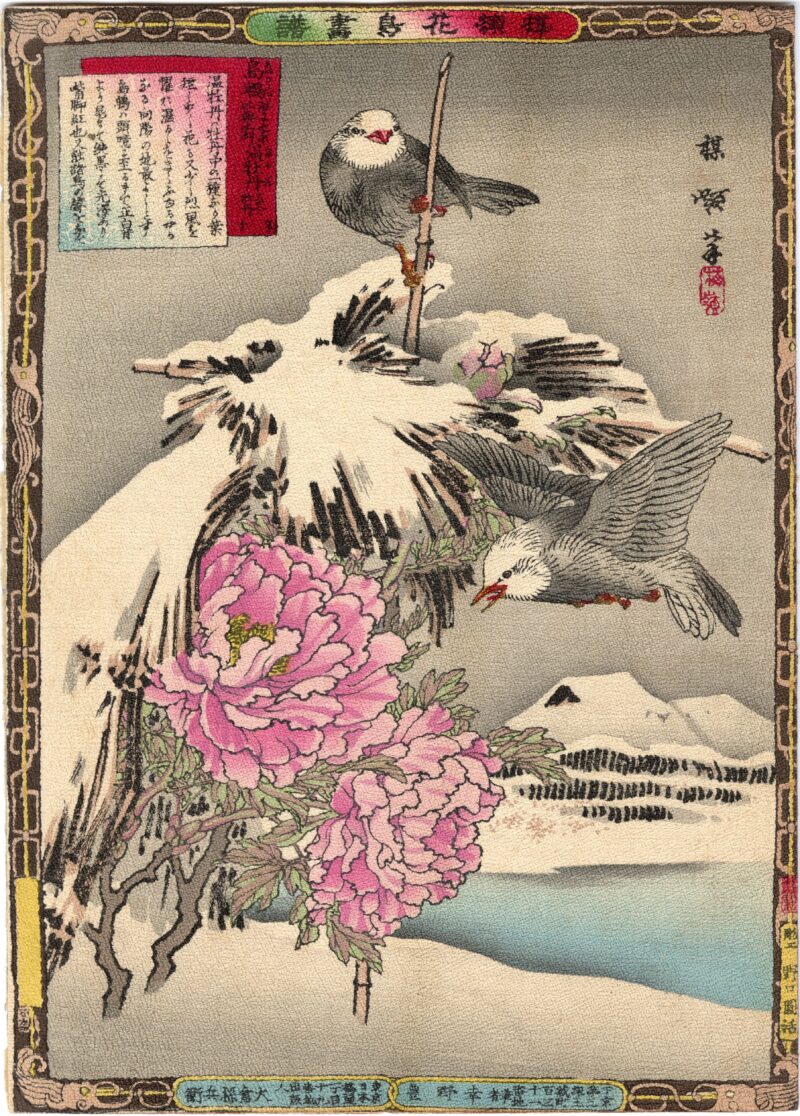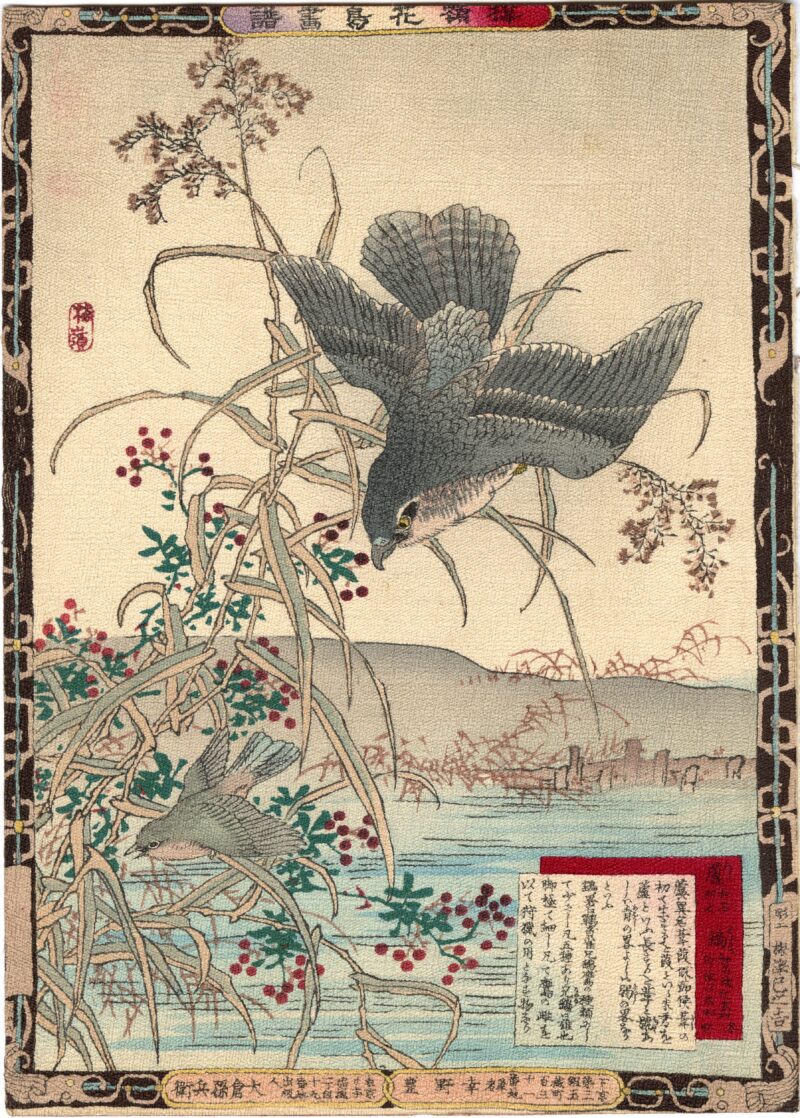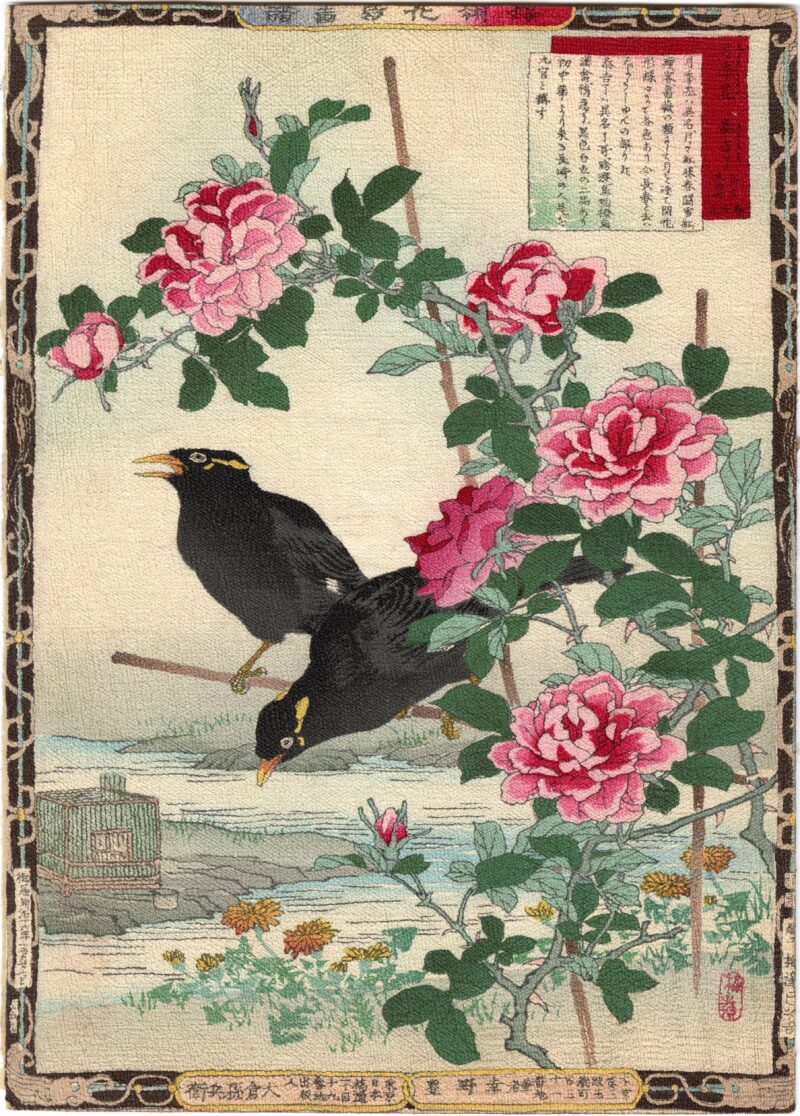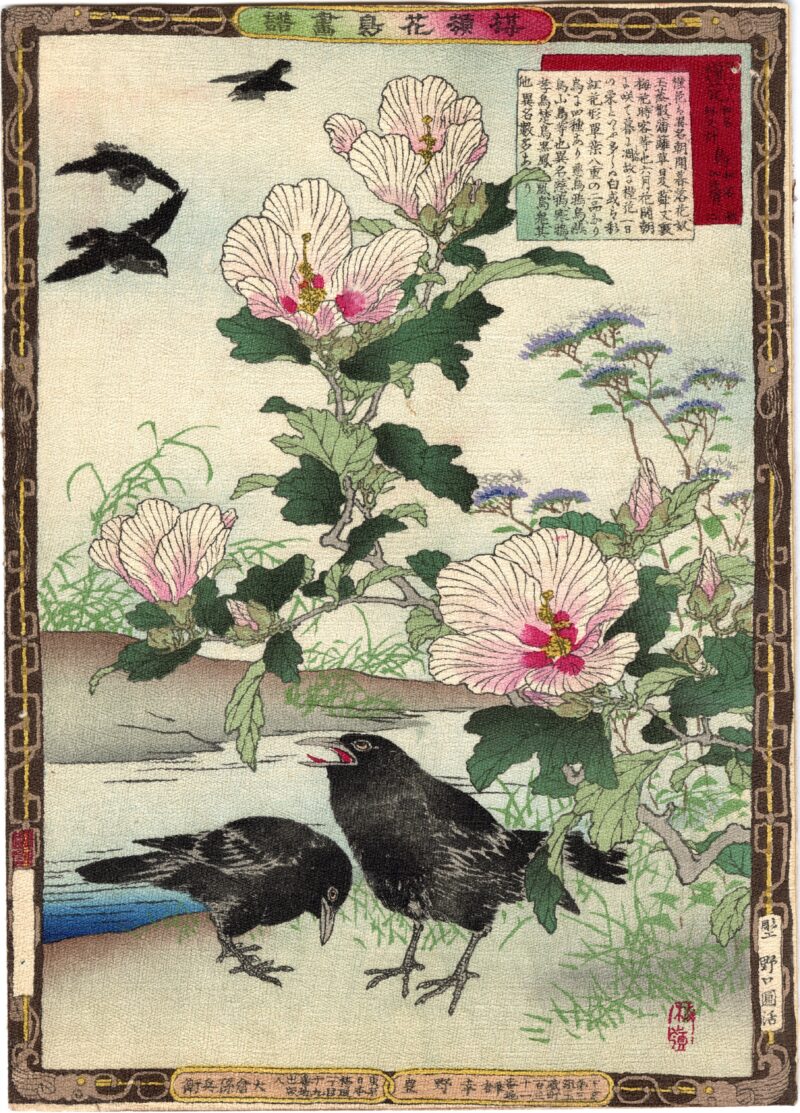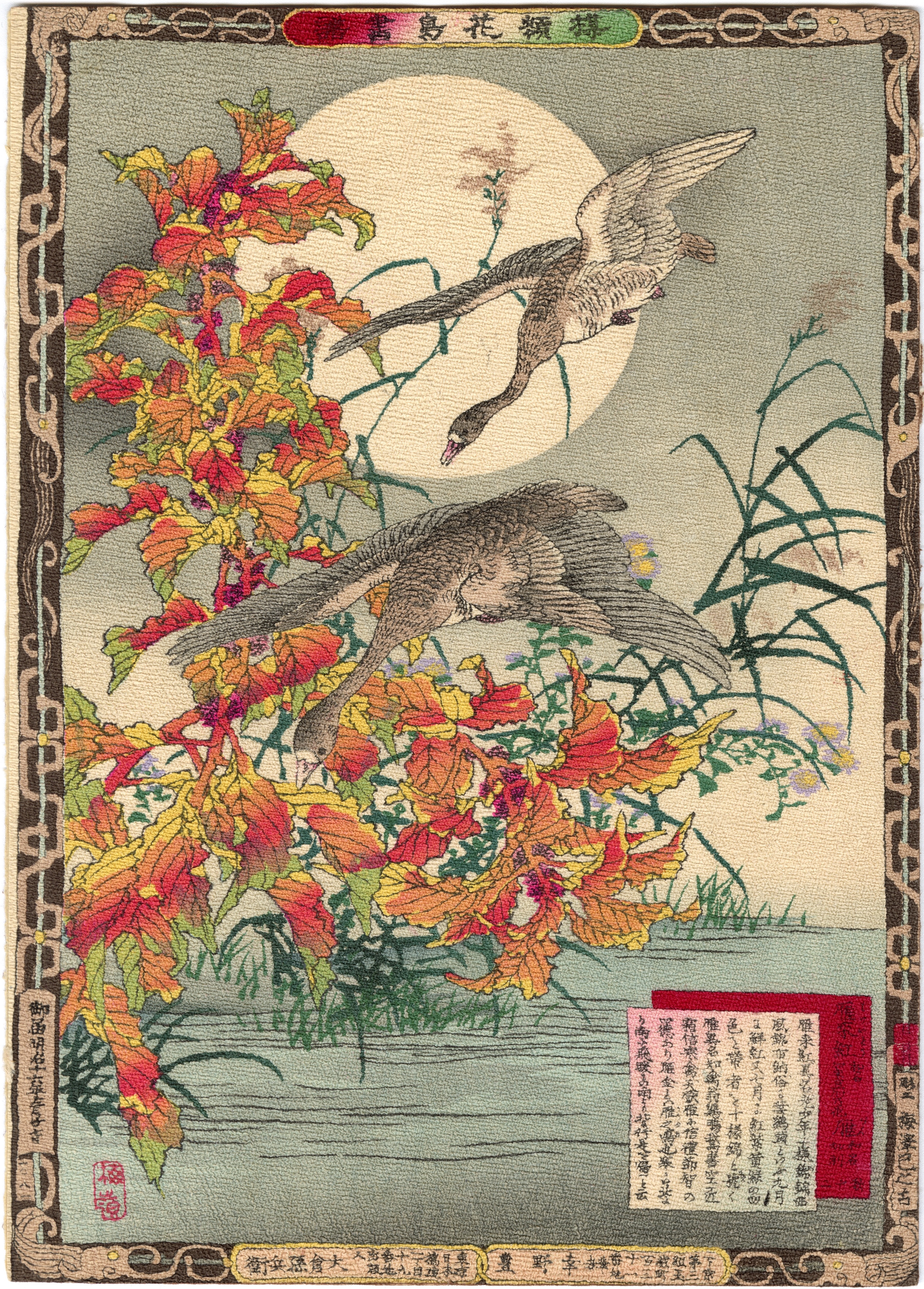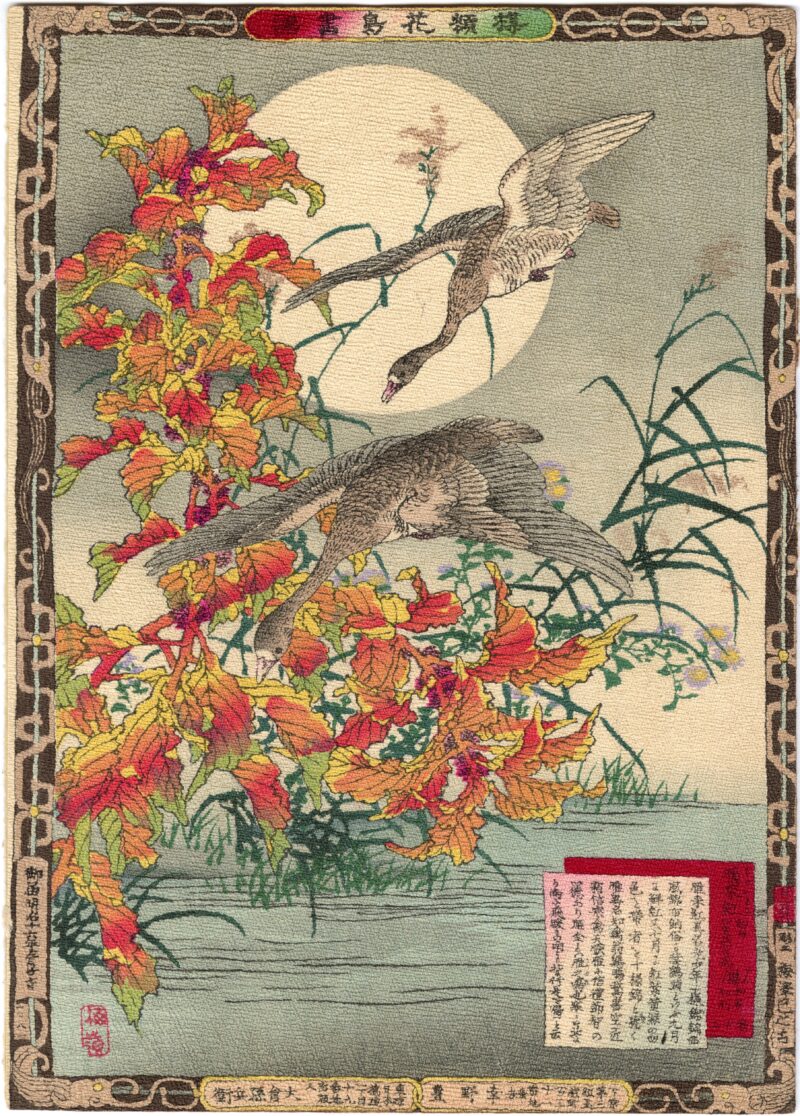- Collection
- Collection database
- Tricolored Amaranth and Wild Geese: Autumn no. 12
Tricolored Amaranth and Wild Geese: Autumn no. 12
Bairei’s Picture Album of Flowers and Birds
Information
| Title | Tricolored Amaranth and Wild Geese: Autumn no. 12 Hageitō gan aki jūni 雁来紅雁 秋十二 |
| Series title | Bairei’s Picture Album of Flowers and Birds 楳嶺花鳥畫譜 |
| Artist | Kōno Bairei 幸野楳嶺 (1844–1895) |
| Date | 27/12/1883 |
| Publisher | Ōkura Magobei 大倉孫兵衛 |
| Woodcarver | Umezawa Minokichi 梅澤巳之吉 |
| City | Kyoto & Tokyo |
| Artist seal | Bairei 楳嶺 |
| Blockcutter’s (and/or) printer’s) seal(s) | horikō Umezawa Minokichi 彫工梅澤巳之吉 |
| Inscription | (lower margin) 下京第三組玉藏町百三十一番地 筆者 幸野豊 Shimogyō dai-3-gumi Tamakurachō 131 banchi hissha Kōno Toyo (Bairei’s address in Kyoto, author: Kōno Toyo) 東京日本橋通一丁目十九番地 出版人 大倉孫兵衛 Tōkyō Nihonbashidōri 1-chōme 19 banchi shuppanjin Ōkura Magobei (publisher’s address in Tokyo, publisher: Ōkura Magobei) Numbered 1081 一◯八一 |
| Technique & material | Woodblock print; full colour print; pigment on paper |
| Object number | SH2023-CB-08 |
| Credit Line | Gift of Chris Blom |
| Provenance | Gifted to the Japan Museum SieboldHuis in February 2023 by Chris Blom |
Description
From a series of 50 prints that depict and describe flowers and birds in encyclopedic style, divided in the four seasons. The prints were also bound and sold in two sets; one for autumn and winter and one for spring and summer. The series was later reissued without the decorative frame and descriptive texts. This particular set was treated with the technique for making crêpe paper. The process of creating crêpe prints (chirimen) goes as follows: after printing, the sheet is moistened and, together with other sheets, wrapped around a cilinder, after which the roll is compressed. This is repeated from various angles, causing the print to reduce in size and obtains a wrinkly texture. Chirimen were especially popular among the French public in the late 19th century and were exported in great numbers around that time.


